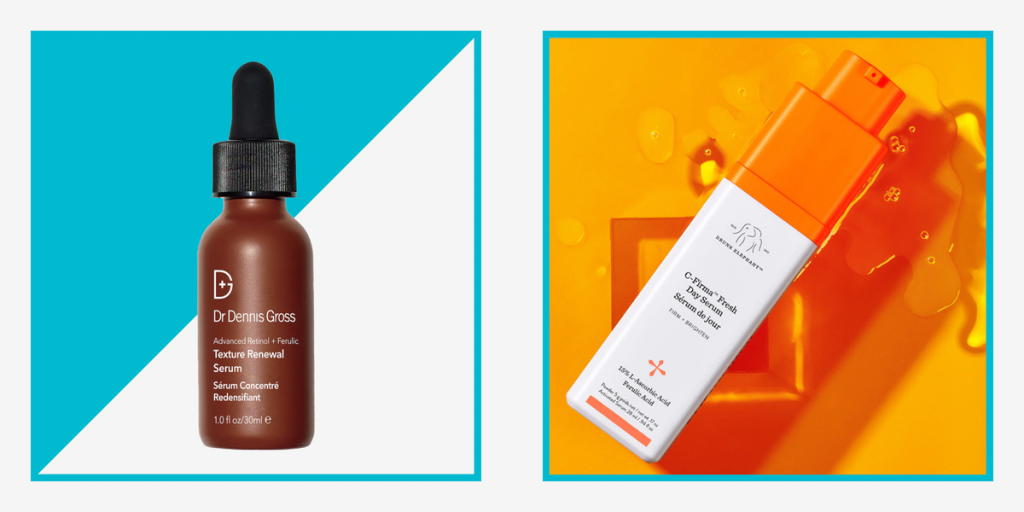Serums are to skincare as a shot of espresso is to your morning coffee.
All effective skincare routines, even the most basic ones, have four major tenets: cleanse, treat, moisturize, and protect. Most of those steps are self-explanatory. Cleanse simply means wash your face. Moisturize means to, well, use moisturizer. Protect means wearing sunscreen every day. If you do those three things, you’re way ahead of lots of other dudes—and on your way to great skin.
But that “treat” step is tricky. What exactly does that mean? Basically, treat means that between washing your face and applying moisturizer is your chance to address specific issues like acne, wrinkles, rosacea, irritation, or anything you would like to change about your skin. And to do that quickly and effectively, allow you need to befriend serums.
Think of serums as a power boost to your skincare routine—like the fire flower in Super Mario Bros or the espresso shot in your morning drip. In skincare terms, serums are highly concentrated with ingredients that are designed to target and treat specific issues. Other products, like moisturizers, offer more general protection. Serums, on the other hand, generally have higher doses of active ingredients that can more effectively work on certain skin problems.
Ingredients To Look For In A Serum
Often, serums will be named for what they do (anti-aging or hydration, for example), which makes decoding ingredients easy. But you’ll also usually see ingredients listed on the outer packaging to tell you what is doing all the work. Depending on what you’re treating, you’ll likely see some of these common players:
Hyaluronic Acid: Our bodies naturally produce hyaluronic acid which can absorb and hold 1,000 times its weight in water, making it a powerful ingredient to help maintain healthy moisture levels in your skin. Hyaluronic acid is important for everyone, but especially if you struggle with dry skin issues.
Vitamin C: Antioxidants help neutralize free radicals from sunlight and even counteract the skin impacts of pollution, which can cause dullness, uneven skin tone, and even skin cancer. Vitamin C is one of the most powerful antioxidants out there and is typically the most common antioxidant you’ll see in skincare.
Niacinamide: Niacinamide is a form of vitamin B3, but it’s also an antioxidant. It can lighten dark spots, smooth skin texture, even out skin tone, and generally strengthen the skin from the inside out.
Retinol: Derived from vitamin A, retinol is one of the most well-studied and powerful ingredients in skincare. It helps speed up cell turnover, which in turn not only helps prevent wrinkles and signs of aging but can also help treat and prevent acne breakouts. It can sensitize the skin, especially when you first start using it, so apply it only at night and always wear sunscreen during the day.
How To Use A Serum
Adding a serum to your routine is pretty simple: Apply serum on clean skin after washing your face. Use a patting motion with your hands to help press it into your skin instead of rubbing it on like a moisturizer. Some hydrating serums can be used in place of moisturizer, but you generally want to follow a serum with some sort of moisturizer to help lock it in your skin. Retinol should only be applied at night, but most other serums can be used in the morning, too. When in doubt, read the usage instructions on the label.
Choosing from the hundreds—possibly thousands—of serum options out there can be daunting. Start with this list of top-rated selections and you’re on your way to the skin of your dreams.
[ad_2]
Article link
